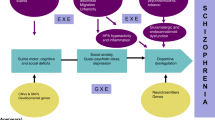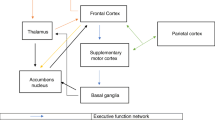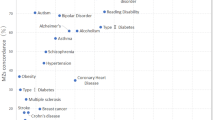Abstract
As well as a lead-related environmental factor, genetic factors could also corroborate important changes in intelligence quotient (IQ) through single-nucleotide polymorphisms. Thus, a systematic review was carried out to evaluate the possible influence of polymorphism on blood Pb levels and IQ points in pediatric patients (0–19 years old). Following the PRISMA guideline, the studies were systematically collected on PubMed, Scopus, and Embase databases. Six genes (transferrin (TF); glutamate ionotropic receptor NMDA type subunit 2A (GRIN2A); glutamate ionotropic receptor NMDA type subunit 2B (GRIN2B); dopamine receptor D2/ankyrin repeat and kinase domain containing 1 ankyrin repeat and kinase domain containing 1 (DRD2/ANKK1); aminolevulinate dehydratase (ALAD); vitamin D receptor (VDR)) were found in six selected articles. In these genes, 11 single-nucleotide polymorphisms were searched and six different types of variations (missense variant, intron variant, synonymous variant, stop, stop gained) were observed. Due to the few studies in the literature, there is no conclusive data to point out that there is a direct relationship between polymorphisms, Pb levels, and reduction of IQ points.








Similar content being viewed by others
Data availability
Not applicable.
Code availability
Not applicable.
References
Agency For Toxic Substances And Disease Registry (ATSDR) (2019) Case studies in environmental medicine (CSEM): lead toxicity. https://www.atsdr.cdc.gov/csem/lead/docs/CSEM-Lead_toxicity_508.pdf. Accessed 02.08.21
Alvarez-Ortega N, Caballero-Gallardo K, Olivero-Verbel J (2019) Toxicological effects in children exposed to lead: a cross-sectional study at the Colombian Caribbean coast. Environ Int 130:104809. https://doi.org/10.1016/j.envint.2019.05.003
Amin N, De Vrij FMS, Baghdadi M et al (2018) A rare missense variant in RCL1 segregates with depression in extended families. Mol Psychiatry 23:1120–1126. https://doi.org/10.1038/mp.2017.49
Bien Z, Bang WC, Kim DY, Han JS (2002) Machine intelligence quotient: its measurements and applications. Fuzzy Sets Syst 127:3–16. https://doi.org/10.1016/S0165-0114(01)00149-X
Cervantes-Arriaga A, Rodríguez-Violante M, González-Latapí P et al (2015) Relación entre el polimorfismo DRD2/ANKK1 y el desarrollo de complicaciones motoras en enfermedad de Parkinson. Neurol Argentina 7:28–33. https://doi.org/10.1016/j.neuarg.2014.09.001
Desrochers-Couture M, Oulhote Y, Arbuckle TE et al (2018) Prenatal, concurrent, and sex-specific associations between blood lead concentrations and IQ in preschool Canadian children. Environ Int 121:1235–1242. https://doi.org/10.1016/j.envint.2018.10.043
Di Maio R, Hoffman EK, Rocha EM et al (2018) A central role for LRRK2 in idiopathic Parkinson disease. Sci Transl Med 10:eaar5429. https://doi.org/10.1126/scitranslmed.aar5429.A
Eiró LG, Ferreira MKM, Frazão DR et al (2021) Lead exposure and its association with neurological damage: systematic review and meta-analysis. Environ Sci Pollut Res 28:37001–37015. https://doi.org/10.1007/s11356-021-13536-y
Ford EB (1945) Polymorphism. Biol Rev 20(2):73–88. https://doi.org/10.1111/j.1469-185X.1945.tb00315.x
Galiciolli MEA, Lima LS et al (2021) IQ alteration induced by lead in developed and underdeveloped/developing countries: a systematic review and a meta-analysis. Environ Pollut:118316.https://doi.org/10.1016/j.envpol.2021.118316
Grizzle R (2011) Wechsler intelligence scale for children, fourth edition. In: Goldstein S, Naglieri JA (eds) Encyclopedia of child behavior and development. Springer, Boston. https://doi.org/10.1007/978-0-387-79061-9_3066
Hopkins MR, Ettinger AS, Hernández-Avilla M et al (2008) Variants in iron metabolism genes predict higher blood lead levels in young children. Environ Health Perspect 116:1261–1266. https://doi.org/10.1289/ehp.11233
Jacobson JL, Muckle G, Ayotte P et al (2015) Relation of prenatal methylmercury exposure from environmental sources to childhood IQ. Environ Health Perspect 123:827–833. https://doi.org/10.1289/ehp.1408554
Jusko TA, Henderson CR, Lanphear BP et al (2008) Blood lead concentration <10 μg/dL and child intelligence at 6 years of age. Environ Health Perspect 116:243–248. https://doi.org/10.1289/ehp.10424
Kim JI, Kim JW, Lee JM et al (2018) Interaction between DRD2 and lead exposure on the cortical thickness of the frontal lobe in youth with attention-deficit/hyperactivity disorder. Prog Neuro-Psychopharmacol Biol Psychiatry 82:169–176. https://doi.org/10.1016/j.pnpbp.2017.11.018
Liu J, Li L, Wang Y et al (2013) Impact of low blood lead concentrations on IQ and school performance in Chinese children. PLoS ONE 8:e65230. https://doi.org/10.1371/journal.pone.0065230
Lucchini RG, Zoni S, Guazzetti S et al (2012) Inverse association of intellectual function with very low blood lead but not with manganese exposure in Italian adolescents. Environ Res 118:65–71. https://doi.org/10.1016/j.envres.2012.08.003
Mason LH, Harp JP, Han DY (2014) Pb neurotoxicity: neuropsychological effects of lead toxicity. Biomed Res Int 2014:840547. https://doi.org/10.1155/2014/840547
Menezes-Filho JA, Carvalho CF, Rodrigues JLG et al (2018) Environmental co-exposure to lead and manganese and intellectual deficit in school-aged children. Int J Environ Res Public Health 15:2418. https://doi.org/10.3390/ijerph15112418
Methley AM, Campbell S, Chew-Graham C, McNally R, Cheraghi-Sohi S (2014) PICO, PICOS and SPIDER: a comparison study of specificity and sensitivity in three search tools for qualitative systematic reviews. BMC Health Serv Res 14:79. https://doi.org/10.1186/s12913-014-0579-0
Mitra P, Sharma S, Purohit P, Sharma P (2017) Clinical and molecular aspects of lead toxicity: an update. Crit Rev Clin Lab Sci 54:506–528. https://doi.org/10.1080/10408363.2017.1408562
Modabbernia A, Velthorst E, Gennings C et al (2016) Early-life metal exposure and schizophrenia: a proof-of-concept study using novel tooth-matrix biomarkers. Eur Psychiatry 36:1–6. https://doi.org/10.1016/j.eurpsy.2016.03.006
Moher D, Shamseer L, Clarke M et al (2015) Preferred reporting items for systematic review and meta-analysis protocols (PRISMA-P) 2015 statement. Syst Rev 4:1. https://doi.org/10.1186/2046-4053-4-1
National Center for Biotechnology Information (NCBI) (2021a) ALAD - aminolevulinate dehydratase [Homo sapiens (human)]. https://www.ncbi.nlm.nih.gov/gene/210. Accessed 6 Apr 2021
National Center for Biotechnology Information (NCBI) (2021b) VDR - vitamin D receptor [Homo sapiens (human)]. https://www.ncbi.nlm.nih.gov/gene/7421. Accessed 6 Apr 2021
National Center for Biotechnology Information (NCBI) (2021c) DRD2 - dopamine receptor D2 [Homo sapiens (human)]. https://www.ncbi.nlm.nih.gov/gene/1813. Accessed 6 Apr 2021
National Center for Biotechnology Information (NCBI) (2021d) GRIN2A - glutamate ionotropic receptor NMDA type subunit 2A [Homo sapiens (human)]. https://www.ncbi.nlm.nih.gov/gene/2903. Accessed 6 Apr 2021
National Center for Biotechnology Information (NCBI) (2021e) GRIN2B - glutamate ionotropic receptor NMDA type subunit 2B [Homo sapiens (human)]. https://www.ncbi.nlm.nih.gov/gene/2904. Accessed 6 Apr 2021
National Center for Biotechnology Information (NCBI) (2021f) TF - transferrin [Homo sapiens (human)]. https://www.ncbi.nlm.nih.gov/gene/7018. Accessed 6 Apr 2021
National Center for Biotechnology Information (NCBI) (2021g) ANKK1 - ankyrin repeat and kinase domain containing 1 [Homo sapiens (human)]. https://www.ncbi.nlm.nih.gov/gene/255239. Accessed 6 Apr 2021
National Human Genome Research Institute (NHGRI) (2021a) Talking glossary of genetic terms - exon. https://www.genome.gov/genetics-glossary/Exon. Accessed 6 Apr 2021a
National Human Genome Research Institute (NHGRI) (2021b) Talking glossary of genetic terms - missense mutation. https://www.genome.gov/genetics-glossary/Missense-Mutation. Accessed 6 Apr 2021b
Onalaja AO, Claudio L (2000) Genetic susceptibility to lead poisoning. Environ Health Perspect 108:23–28. https://doi.org/10.1289/ehp.00108s123
Pawlas N, Broberg K, Olewińska E et al (2012) Modification by the genes ALAD and VDR of lead-induced cognitive effects in children. Neurotoxicology 33:37–43. https://doi.org/10.1016/j.neuro.2011.10.012
Qian M, Morgan EH (1993) Transferrin-free and transferrin-bound iron into rabbit reticulocytes. Biochem Pharmacol 40:1049–1054. https://doi.org/10.1016/0006-2952(90)90492-4
Qiu Q, Jia L, Wang Q et al (2020) Identification of a novel PSEN1 Gly111Val missense mutation in a Chinese pedigree with early-onset Alzheimer’s disease. Neurobiol Aging 85:155.e1-155.e4. https://doi.org/10.1016/j.neurobiolaging.2019.05.018
Rooney JPK, Woods NF, Martin MD, Woods JS (2018) Genetic polymorphisms of GRIN2A and GRIN2B modify the neurobehavioral effects of low-level lead exposure in children. Environ Res 165:1–10. https://doi.org/10.1016/j.envres.2018.04.001
Roy A, Ettinger AS, Hu H et al (2013) Effect modification by transferrin C2 polymorphism on lead exposure, hemoglobin levels, and IQ. Neurotoxicology 38:17–22. https://doi.org/10.1016/j.neuro.2013.05.005
Roy A, Hu H, Bellinger DC et al (2011) Hemoglobin, lead exposure, and intelligence quotient: effect modification by the DRD2 Taq IA polymorphism. Environ Health Perspect 119:144–149. https://doi.org/10.1289/ehp.0901878
Shaik A, Jamil K (2008) A study on the ALAD gene polymorphisms associated with lead exposure. Toxicol Ind Health 24:501–506. https://doi.org/10.1177/0748233708095770
Shaik AP, Alsaeed AH, Sultana A, Faiyaz-Ul-Haque M, Alsaeed MA, Tabassum S, Ahmed M, Sibtain A, Shaik S et al (2018) A study on ALAD (G177C and T168C) and MGP (T-138C) gene polymorphisms associated with lead exposure in subjects from Saudi Arabia. Int J Adv Appl Sci 5:53–59. https://doi.org/10.21833/ijaas.2018.03.008
Shaul O (2017) How introns enhance gene expression. Int J Biochem Cell Biol 91:145–155. https://doi.org/10.1016/j.biocel.2017.06.016
Sherchand O, Mehta K, Poudel P et al (2014) Blood lead levels of primary school children in Kathmandu municipality, Nepal. J Inst Med 36:13–21
Sterne JA, Hernán MA, Reeves BC et al (2016) ROBINS-I: a tool for assessing risk of bias in non-randomized studies of interventions. BMJ 355:i4919. https://doi.org/10.1136/bmj.i4919
Tiwari AKM, Mahdi AA, Mishra S et al (2020) Effect of iron and folate supplementation on Pb levels in pregnant anemic women: a prospective study. Free Radic Res 54:662–669. https://doi.org/10.1080/10715762.2020.1825704
Vaz-Drago R, Custódio N, Carmo-Fonseca M (2017) Deep intronic mutations and human disease. Hum Genet 136:1093–1111. https://doi.org/10.1007/s00439-017-1809-4
World Health Organization (WHO) (2010) Childhood lead poisoning. http://www.who.int/ceh/publications/leadguidance.pdf. Accessed 20 Jun 2021
Wu Y, Wang Y, Wang M et al (2017) GRIN2A polymorphisms and expression levels are associated with lead-induced neurotoxicity. Toxicol Ind Health 33:332–339. https://doi.org/10.1177/0748233716647636
Zeng Z, Bromberg Y (2019) Predicting functional effects of synonymous variants: a systematic review and perspectives. Front Genet 10:914. https://doi.org/10.3389/fgene.2019.00914
Funding
This study was financed in part by the Coordenação de Aperfeiçoamento de Pessoal de Nível Superior – Brasil (CAPES) – Código de Financiamento 001 and Instituto de Pesquisa Pelé Pequeno Príncipe (IPPPP, Curitiba, Brazil). The funders were not involved in the design of the study; data collection, analysis, and interpretation of the data; and the writing of the manuscript.
Author information
Authors and Affiliations
Contributions
Luiza Lima and Maria Eduarda Andrade Galiciolli: methodology, data curation, writing — original draft. Cleber Machado-Souza and Karoline Felisbino: investigation and writing — original draft. Claudia Sirlene Oliveira and Izonete Cristina Guiloski: supervision and writing — reviewing and editing. All authors read and approved the final manuscript.
Corresponding author
Ethics declarations
Ethics approval
Not applicable.
Consent to participate
Not applicable.
Consent for publication
Not applicable.
Competing interests
The authors declare no competing interests.
Additional information
Responsible Editor: Lotfi Aleya
Publisher’s note
Springer Nature remains neutral with regard to jurisdictional claims in published maps and institutional affiliations.
Rights and permissions
About this article
Cite this article
Lima, L.S., Galiciolli, M.E.A., Pereira, M.E. et al. Modification by genetic polymorphism of lead-induced IQ alteration: a systematic review. Environ Sci Pollut Res 29, 43435–43447 (2022). https://doi.org/10.1007/s11356-022-19981-7
Received:
Accepted:
Published:
Issue Date:
DOI: https://doi.org/10.1007/s11356-022-19981-7




